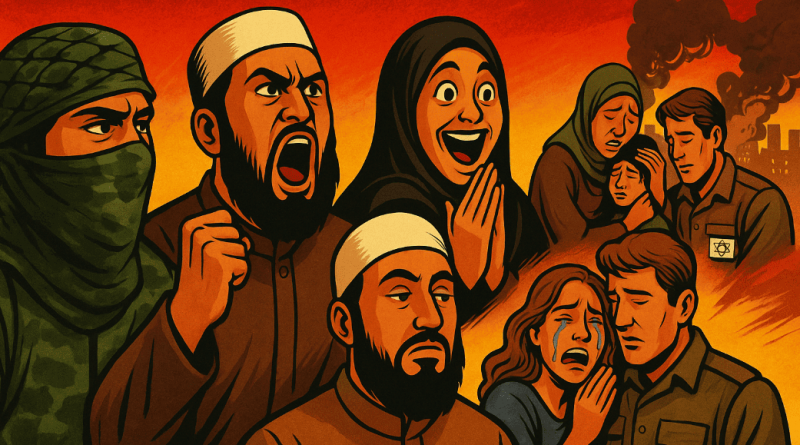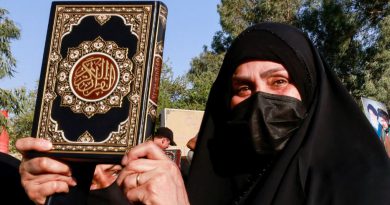OPINION: Gaza Vs. Israel—The Double Standards of Islamist Outrage
True commitment to justice means standing with all oppressed people, regardless of faith—not just those who resemble us.
The Palestinian struggle has metamorphosed from a national liberation movement into a cause increasingly espoused by Islamists of all hues and ideologies. While it remains deeply emotional and significant for Muslims worldwide, this shift has introduced confusion—especially when difficult questions are raised about the political and ideological framing of the issue.
The narrative that Islamist intellectuals have carefully constructed begins to collapse like a house of cards when confronted with uncomfortable questions—questions often left unanswered or deliberately obscured. But why ask such questions at all? Isn’t this just whataboutery?
Yes, it can be. But when used sincerely, whataboutery is a way to scratch the bottom and understand a position that one was trying to hide behind large words and sophisticated vocabulary.
Since October 7, many Muslims have declared, “To stand with Gaza is to stand with humanity.” This frames the Palestinian struggle as a universal moral issue—transcending religion and nation. Yet in the same breath, many ask, “Where are the Arab and Muslim countries?”
Wait—if this is a humanitarian crisis, why appeal to Arab regimes that are openly complicit with imperialist powers? And if the call is rooted in ummah and religious solidarity, then why invoke the language of universal humanity?
At the rhetorical level, it’s about “humanity”; but at a deeper level, it’s clearly framed as a crisis of the ummah, to the exclusion of others. The contradiction reveals a fundamental confusion—not just about Palestine, but about many critical questions facing Muslims today.
Should Israel be opposed as part of religious faith or for its actions in Gaza? The answer, often, is both. Is the Jewish people an eternal enemy, or is the enmity grounded in the ongoing genocide against Palestinians? The line is blurred.
Many cheer when Israelis—soldiers or civilians—are killed, making no moral distinction. The now-viral meme “Of course I support LGBT: Let’s Go Bomb Tel Aviv” is not just tasteless; it’s a genocidal fantasy, echoing cries for a second Holocaust. Forget soldiers—there is often no concern even for Israeli children, while outrage for Palestinian children is rightfully widespread.
This selective empathy, this moral hypocrisy, stains the integrity of the cause. And unless we confront it honestly, we risk replacing one injustice with another.
Not all people living in Israel, and certainly not all Jewish people, are complicit in the “genocide”. There are Jewish voices who have spoken-up against Israel’s far-right groups. But where are the Muslim equivalents of such Jewish voices? Where are the visible Jewish-Muslim brotherhood platforms actively resisting antisemitism and calling for hating the oppression and not the jewish people in letter and Spirit?
The increasing Islamization of the Palestinian cause has effectively narrowed the space for such solidarity to emerge from the Muslim side. Instead of expanding the struggle into a broader coalition for justice, it has been boxed into religious identity and issue—shrinking the possibility of building alliances that transcends faith and can talk about pressing issues .
Muslims must reconsider the nature of their solidarity—moving beyond a reaction rooted solely in religious identity. Instead of supporting the Palestinian cause merely because the victims are co-religionists, solidarity must be grounded in a deeper, more critical and humane response to human suffering.
True commitment to justice means standing with all oppressed people, regardless of faith—not just those who resemble us. Communalizing the struggle not only weakens its moral foundation but also isolates it from broader global movements for justice.
The Palestinian cause—and the broader Israeli-Palestinian conflict—deserves to be part of a larger, more inclusive struggle for dignity, freedom, and shared humanity, rising above narrow religious or cultural divisions toward a just future for both peoples.
Disclaimer: Views expressed by writers in this section are their own and do not reflect Milli Chronicle’s point-of-view.



